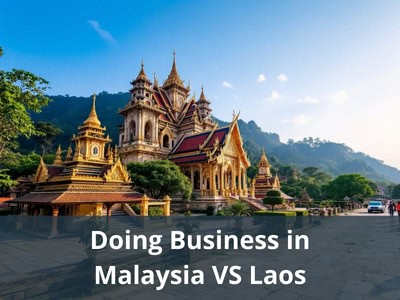Ready to Expand into India? Choose 3E Accounting Today!
Stay Secure, Stay Successful With 3E Accounting Services

Understanding the trade-offs—cost, ease of setup, taxation, and market access—can help you make the right decision.
Here’s a quick overview of the key differences for easy reference.
| Factor | Malaysia | Laos |
|---|---|---|
| Business Environment | Stable, transparent, investor-friendly | Emerging, with limited legal clarity |
| Corporate Tax Rate | 24% | 20% |
| Capital Gains Tax | No capital gains tax | Yes, depending on asset type |
| Ease of Incorporation | Fast and fully digital with expert help | Manual and often delayed |
| Business Costs | Low, especially for startups | Low, but long-term costs may rise |
| Market Access | Strong ASEAN and global reach | Regional, with logistics challenges |

Selecting the right partner is crucial when it comes to starting a business in Malaysia. At 3E Accounting, we offer a comprehensive range of solutions designed to simplify the entire process of company incorporation in Malaysia. From ensuring compliance with local regulations to providing expert guidance tailored to your specific needs, we make the journey seamless.
For entrepreneurs looking to navigate Malaysia company registration or explore company setup in Malaysia, our team provides unmatched expertise and support. Additionally, our company incorporation services are tailored to help you succeed in the competitive business environment.
With a deep understanding of the region’s business landscape, we also provide resources for setting up businesses in Malaysia, ensuring that every step is clear and efficient. Whether you need assistance with corporate secretarial or company secretary services, we are here to help.
To explore our services or discuss your business needs, contact 3E Accounting. With our strong presence in Malaysia and a proven track record, we are your trusted partner for success in Asia.
Stay Secure, Stay Successful With 3E Accounting Services
Answer: You’ll need to select a legal structure, register with SSM, and prepare basic documents. This starting a business in Malaysia guide walks you through the full process.
Answer: Yes. Malaysia has a digital process that speeds up approvals. If you’re unsure how to proceed, the Malaysia company registration resource provides all the details.
Answer: Malaysia offers strong legal protection, low barriers to entry, and full foreign ownership in many sectors. The advantages are covered in this company incorporation in Malaysia overview.
Answer: Yes. 3E Accounting offers full company incorporation services to handle registration, filings, and post-setup compliance.
Answer: You should review the market, compliance steps, and tax requirements. This setting up businesses in Malaysia guide gives a solid overview of what to expect.
Answer: You can contact 3E Accounting for assistance. They provide full company setup in Malaysia support for local and foreign investors.
Answer: Yes. All companies must file annual returns, maintain records, and follow compliance rules. These corporate secretarial services help you meet legal obligations.
Answer: Yes. Under Malaysian law, every company must appoint a qualified officer. Learn more from these company secretary services.
Abigail Yu
Author
Abigail Yu oversees executive leadership at 3E Accounting Group, leading operations, IT solutions, public relations, and digital marketing to drive business success. She holds an honors degree in Communication and New Media from the National University of Singapore and is highly skilled in crisis management, financial communication, and corporate communications.

